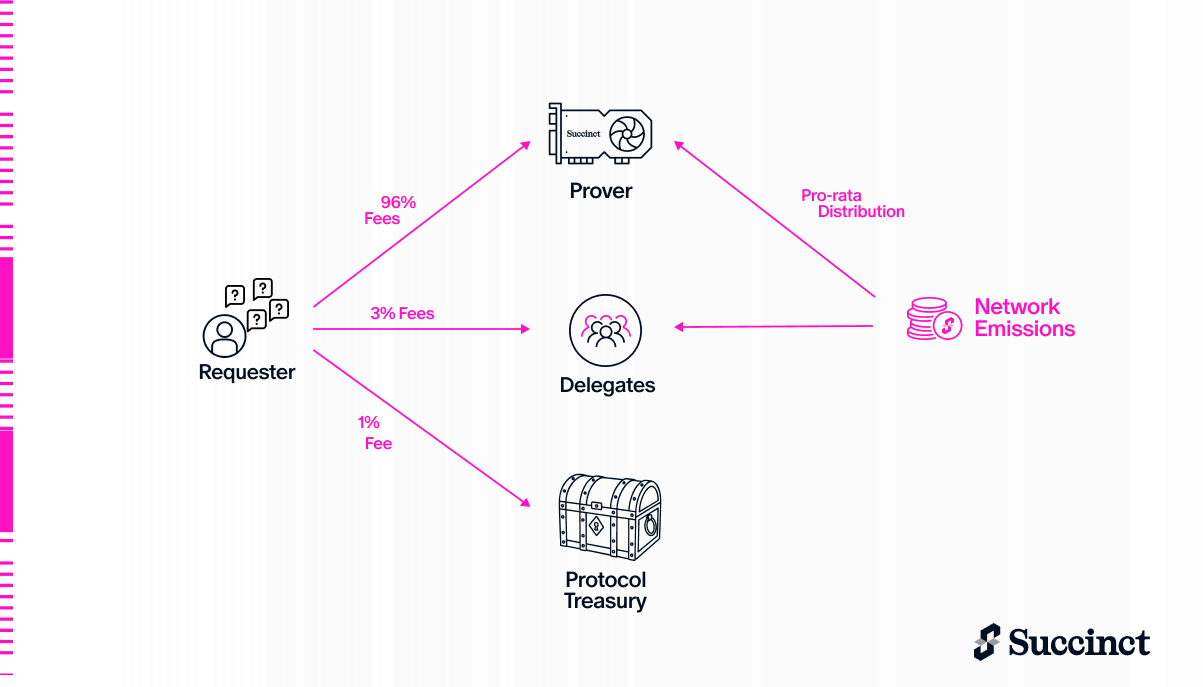PROVE Staking
Anyone can stake PROVE in the network and delegate it to a prover. This stake serves the following purposes:
- It acts as economic security to hold provers accountable for griefing on proofs and missed deadlines; provers require stake in order to be able to participate in auctions and fulfill proofs.
- It enables stakers to participate in protocol governance, updating network parameters such as the emissions rate, staking requirements, and additional auction details.
- It allows stakers to delegate their stake and earn network emissions and a fraction of provers' fees for providing economic security.
To get started, visit Succinct Staking and stake to your favorite provers!
Staking for Economic Security
Provers require stake in order to be able to participate in auctions and fulfill proofs. This stake prevents griefing on proofs and missed deadlines and is important for applications to be sure that their requested proofs will arrive on time.
Being a prover in the network requires a minimum stake amount and larger stake amounts entitle provers to compete for more requests concurrently.
Staking for Protocol Governance
Provers participate in protocol governance by voting on proposals to update network parameters. These parameters include the network emissions rate, staking requirements, and additional auction details. Stakers therefore indirectly contribute to network governance via the provers they delegate to. All stakers receive the network emissions proportional to their stake.
Delegated Staking
Anyone can stake PROVE and delegate it to provers to cover the provers' staking requirements. Delegates also earn a fraction of PROVE fees for the economic security they provide to the prover. Delegated stakers can stake to at most one prover at any time.
The fraction of fees earned by delegated stakers is decided by the prover they have delegated to.
Walkthrough: Staking
Suppose Alice makes a proof request, and in that same period, the network generates new PROVE tokens in emissions. The network distributes the fees from Alice's proof requests and emissions among the prover who fulfills her proof, the delegates that have staked to that prover, and the protocol treasury.
- The winning prover earns a majority of the fees.
- The delegates staked to the winning prover earn a fraction of the fees for the request, decided by the prover, for providing economic security to the prover.
- The protocol takes a network fee.
The network emissions are distributed pro-rata to all the stakers.
